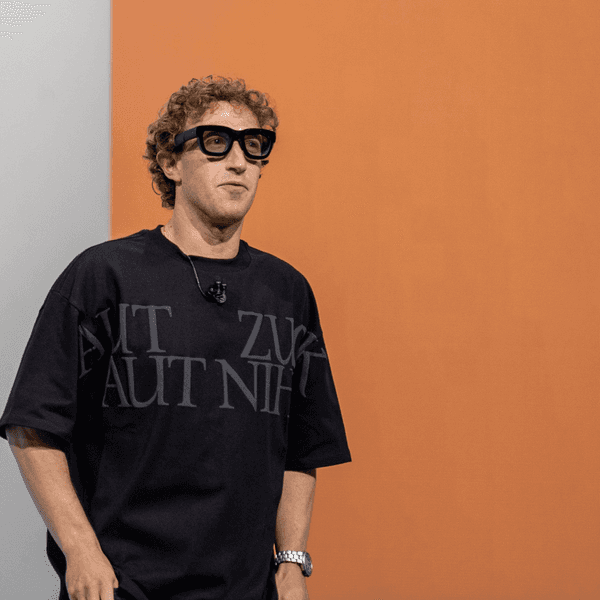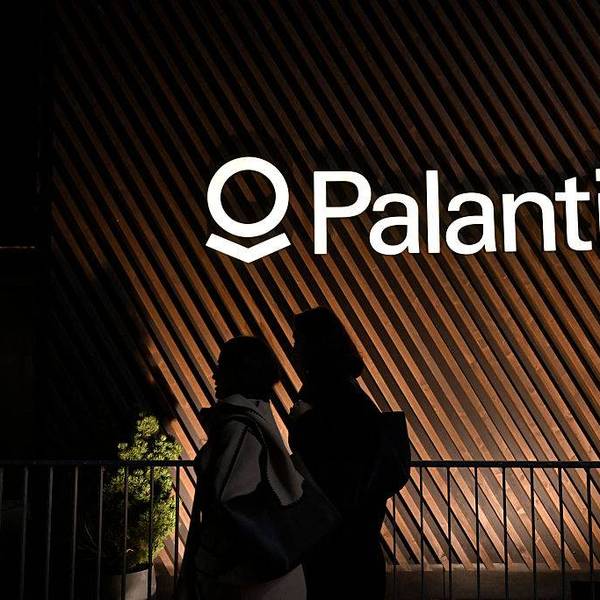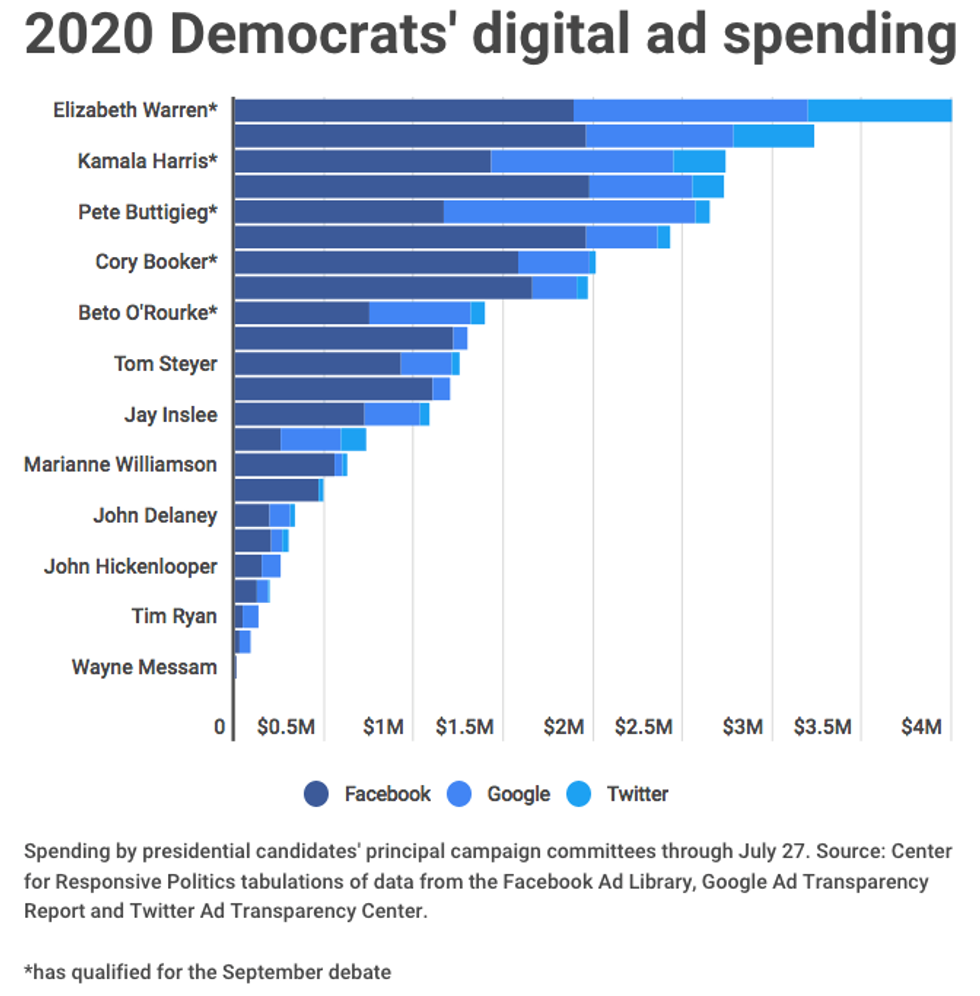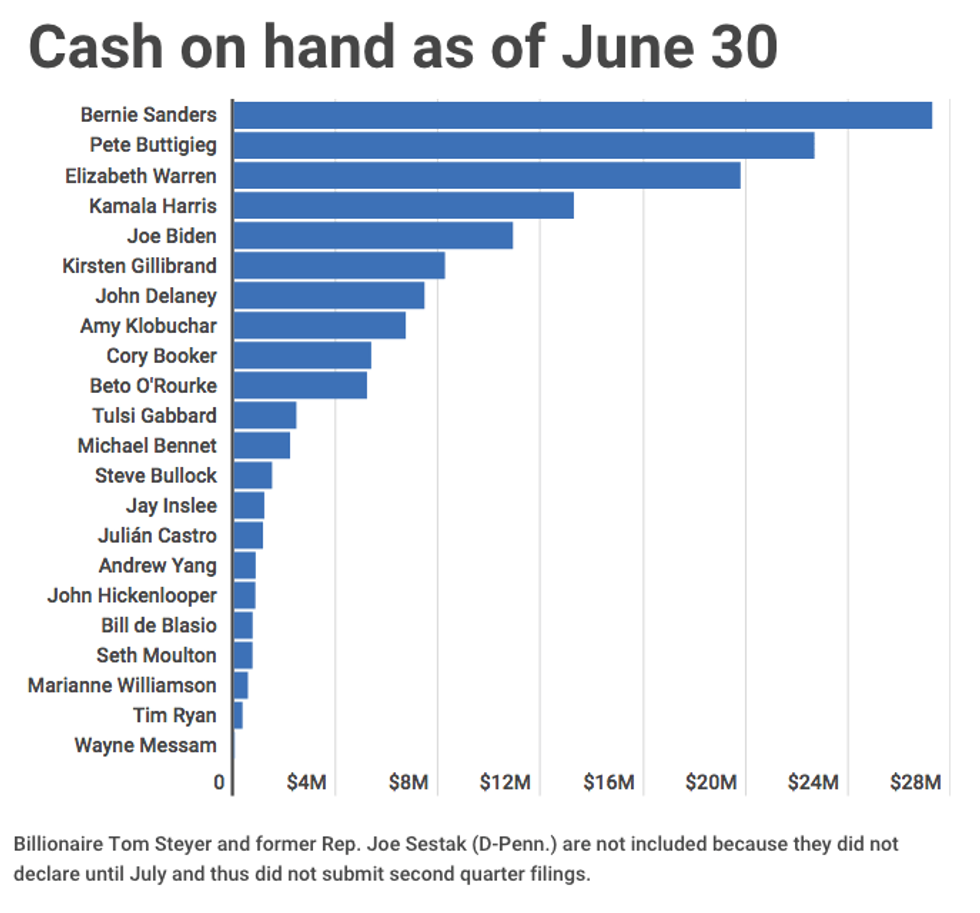When 20 Democrats take to the debate stage in Detroit over the next two nights, it will be, for some, the last chance at a national audience during this election cycle.
The Democratic National Committee has set a higher bar for the next round of debates in September, requiring candidates to garner at least 130,000 individual donors and hit 2 percent in at least four qualifying polls. So far, only seven candidates say they have met both criteria. That is why this week's debates are pivotal for most of the field, as struggling candidates look for a breakout moment that can propel their campaigns into September. Campaigns are dishing out millions on digital ads ahead of the debate in an effort to boost name recognition and reach the higher donor threshold. Cumulatively, Democratic presidential candidates have spent more than $31 million across Twitter, Facebook and Google ads so far this cycle.
Campaign strategists see online advertising as a way for candidates to gather small-dollar donors, who can chip in just $1 on platforms such as ActBlue. Sen.
Elizabeth Warren (D-Mass.), who raised $12.7 million from small donors during the second quarter of 2019, leads all candidates in digital ad expenditures, with $4.1 million spent.
The Massachusetts senator has already qualified for the September debates, as have Vice President Joe Biden, South Bend Mayor Pete Buttigieg, former Rep. Beto O'Rourke, tech entrepreneur Andrew Yang and Sens. Cory Booker and Bernie Sanders. Each of those candidates has spent at least $1 million on digital ads so far.
Sen. Amy Klobuchar (D-Minn.) has also spent nearly $2 million on digital ads. The senator has met the polling requirement for September but has not reached 130,000 donors, though her campaign has told supporters she is just 10,000 donors away.
The remaining candidates will likely be looking for ways to stand out during this week's debates as their fundraising success -- and future debate appearances -- are on the line.
Former Secretary of Housing and Urban Development Julian Castro had his moment during the first round of debates in June when he challenged O'Rourke on immigration policy. Castro's campaign immediately capitalized on the exchange with a surge of digital ads, and the flow of small-dollar donors put the former San Antonio mayor over the 130,000 threshold within 10 days. However, Castro has yet to translate that fundraising to a significant gain in the polls. He needs to hit 2 percent in one more poll in order to qualify for September.
Another candidate looking for a breakthrough in Tuesday's debate is Montana Gov. Steve Bullock, the only new candidate on the debate stage. The governor, who entered the race in late April, has campaigned on his record on combating the role of money in politics and his success as a two-term Democratic governor in a red state.
On the campaign trail, however, Bullock has struggled to stand out: according to polling by Morning Consult, he has only 56 percent name recognition among potential Democratic primary voters. Only Sen. Michael Bennet (D-Colo.), Rep. Seth Moulton (D-Mass.) and billionaire philanthropist Tom Steyer are less well-known.
Neither Steyer nor Moulton will be on the debate stage this week. Steyer, who said he would spend $100 million on his own campaign, has been aggressively recruiting donors online in an effort to make the September debates. His campaign has spent more than $1.2 million on digital ads since he declared his run on July 9.
"The DNC raised the number of donors you need to qualify for the debate stage: 130,000 individual donors by the end of August," one ad reads. "Can you pitch in $1? Your support would mean so much."
Steyer, along with former Rep. John Delaney (D-Md.) and Sen. Kirsten Gillibrand (D-N.Y.), can afford to continue running expensive digital ads even if they fail to gain ground in the polls. Their campaigns have the cash -- for Steyer and Delaney, due to self-funding, and for Gillibrand due to the $9.6 million that she transferred from her Senate committee.
But candidates such as Bullock, former Colorado Gov.
John Hickenlooper and Reps.
Tulsi Gabbard (D-Hawaii) and
Tim Ryan (D-Ohio) don't have the same ability to tap into reserves in the long hunt for donors. They are
among the 10 candidates who had less than $1.5 million in cash on hand at the end of the second quarter and face the possibility of dropping out if they don't gain traction soon.
Hickenlooper spent just over $5,000 on Facebook ads in the past week, a paltry sum compared to the leading candidates. But, ahead of the debate, the former craft brewer made clear that September was his target. "We need 130,000 donors to get to the next round of the debates this fall," one ad said. "Even $5, the cost of one glass of beer, will help us reach the goal."






